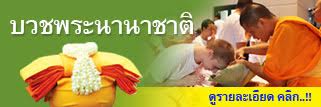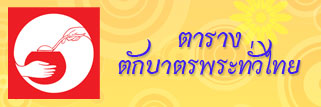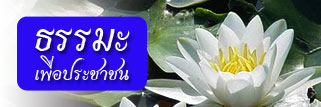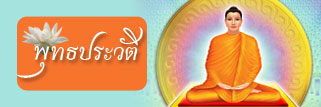Question:
In Thai tradition, on important days like New Year’s Day, or other auspicious days, younger generations always pay respect and ask for blessings from their elders. I’d like to ask Luang Phaw the importance of blessings, and how one bestows blessings.
Answer
by Venerable Dhattajeevo Bhikku
Before addressing on the importance of blessings, we must understand what blessing means. The Thai word for blessing comes from an Indian word “vara” which means noble. Bestowing a blessing is a way to impart nobility. It is nice that we can give nobility to each other.The next question is: What is noble in a person? This is important to know. To answer this question, the principle in Buddhism must be referred. We must look into a person’s heart and not at their appearance. The stately appearances, such as their good looks, beauty, or health are good, but it is not truly great. True greatness is the high moral character that exists in people’s hearts and minds.
What is inside a person’s mind? If a person has not attained arahantship (one who has attained Nibbàna) he will still have flaws. Having a heart full of greed, anger and ignorance will cause him to think, speak and perform many bad things. He will acquire much demerit, which can weaken him. On the other hand, those with little greed, anger, and ignorance will take any opportunities to think, speak, and perform good things. When one performs only good, merit will arise. Then happiness and prosperity will follow him.
Now, elders are people who have lived many years in the world, so they should have some Dhamma principles in their minds on how to overcome greed, anger and ignorance. So, logically, elders must possess more noble qualities within themselves than younger people.
For this reason, a tradition evolved in Buddhist society, especially in Thailand, that on an auspicious day or evening, we ask for blessings or nobility from our elders. For what purpose? In order to develop the noble qualities within us since it took the elders many years before they cultivated the noble qualities within themselves. We do not know how much longer they will remain with us. If we procrastinate, they may pass away before we can ask them about how to best instill noble qualities within ourselves. Then from whom can we seek that knowledge and virtue?
Therefore, on New Year’s Day and other auspicious days, younger people will visit their elders and pay respect to them to request a blessing. They would like to obtain noble qualities. They ask for the method to get rid of greed, anger and ignorance. These elders are not monks, so why do we ask blessings from them? Wouldn’t it be better coming from an actual monk? In the social world we live in, we usually work with other people. We encounter temptations to greed and anger during times when we are faced with adversities. When money arises, greed will arise. When work does not go as well as we desire, anger will occur. When we receive praise and fame, ignorance will arise in our hearts. We will become deluded with one’s ability and grow jealous of those who were rewarded and promoted over us.
When we have come to realize our negative feelings and behavior, we can seek the technique to get rid of greed, anger and ignorance in our professional lives, but not from a monk. It is more appropriate to ask it from elders or our boss, the person who is assigning us the work.
For this reason, when New Year’s Day or Thai New Year’s Day comes, groups of workers go to visit elders or work superiors to receive their blessing. They bring with them flowers, candles and incense to honor and pay sincere respect. They take this opportunity to seek forgiveness for any wrong doing or bad thoughts while at work so that there won’t be any lingering feelings that can lead to bad actions and demerit.
Then they ask their bosses for advice on the right way to work with them, and the best way to eliminate greed, anger and ignorance at work. They know that these elders have encountered many obstacles too before becoming the respected bosses that we look up to. In actuality, we are seeking advice on how to improve ourselves. In Thai culture, when we seek an advice, it may perhaps sound too serious. In contrast, if we say we’re asking for blessings, it doesn’t sound so formal. When we visit senior bosses to pay our respect, the ones worthy of respect will do the following:
1. They keep their promise to never be biased in the workplace. For example, a boss might say, “May the merit derived from working with honesty and without bias protect and provide happiness, prosperity and progress for everyone.” Senior bosses, who have many years of experience, can tell just by looking at the workers’ faces whether they’ve been unhappy at work. Not only will they ask that the virtues in their heart protect us, but they might talk about a specific situation. This is an opportunity for the boss to address specific problems at work.
With the merit that the boss accrues by resolving conflicts at work with truthfulness and integrity, this merit protects this person and helps him become a better person. He recalls his truthfulness, or a specific good deed he had done with sincerity throughout his life.
2. Then resolve that the merit or righteousness protect us.
3. Then our elder will teach us to do good things, according to what they see is appropriate for us.
Furthermore, when these senior bosses know that we are coming to visit them, they will usually prepare kind words or sometimes poems or sayings to offer as our blessing.
When it comes time for you to give blessing to others, please keep these principles in mind.
1. One must have truthfulness. You must have sincerity in doing good deeds. Refer to any past good deeds before bestowing a blessing.
2. Make a resolution that the merit derived from your good efforts protects you.
3. If you would like to offer additional advice, you should teach the principles you used yourself when performing a specific good deed.
4will be highly auspicious.
. Give your blessing with beautiful speech, and in addition
5. Bestow blessings that are appropriate to the occasion. If these steps are followed, the blessings will be highly auspicious.

http://goo.gl/oU1gE








 พิมพ์บทความนี้
พิมพ์บทความนี้


























